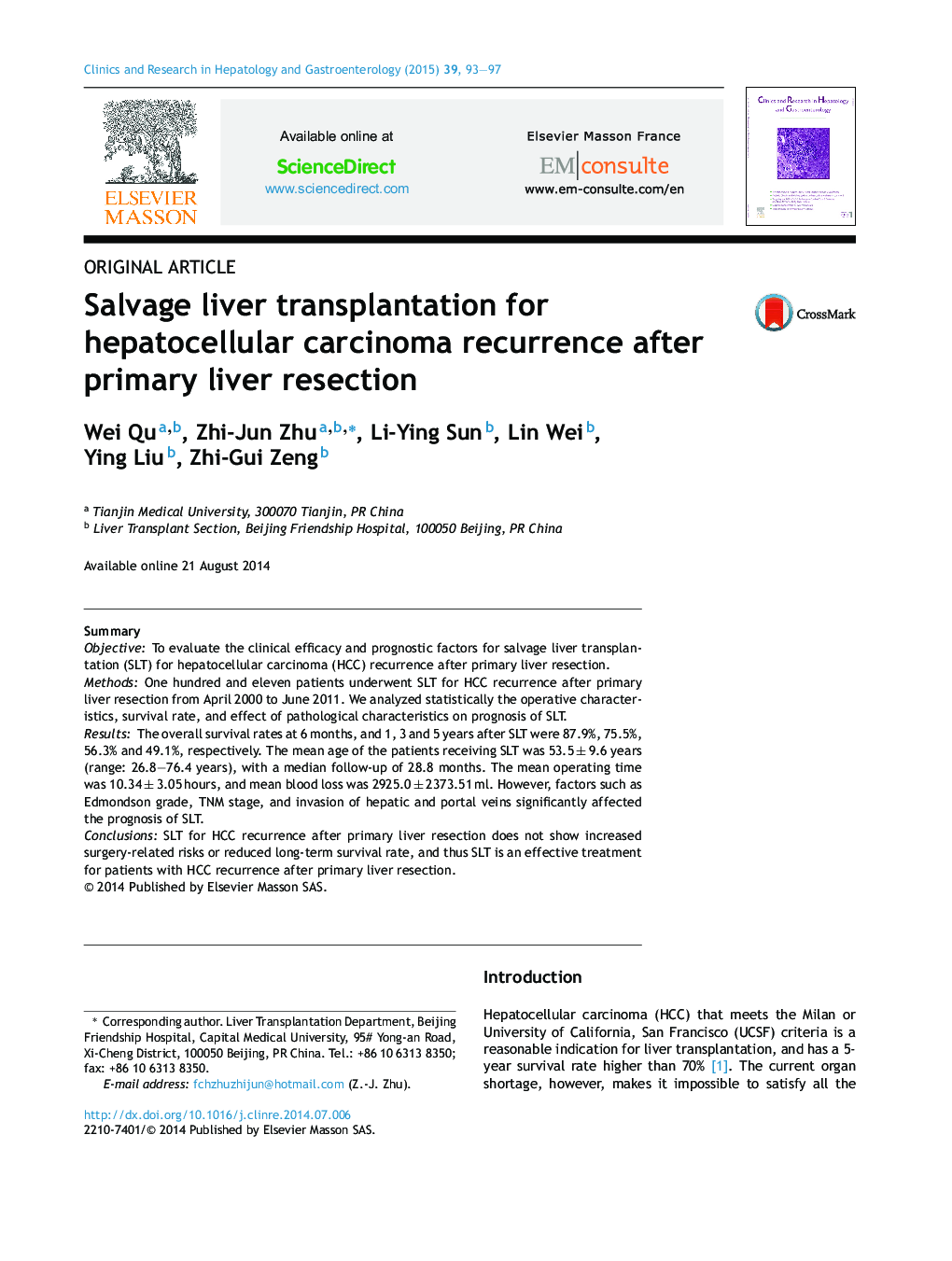| Article ID | Journal | Published Year | Pages | File Type |
|---|---|---|---|---|
| 3286245 | Clinics and Research in Hepatology and Gastroenterology | 2015 | 5 Pages |
SummaryObjectiveTo evaluate the clinical efficacy and prognostic factors for salvage liver transplantation (SLT) for hepatocellular carcinoma (HCC) recurrence after primary liver resection.MethodsOne hundred and eleven patients underwent SLT for HCC recurrence after primary liver resection from April 2000 to June 2011. We analyzed statistically the operative characteristics, survival rate, and effect of pathological characteristics on prognosis of SLT.ResultsThe overall survival rates at 6 months, and 1, 3 and 5 years after SLT were 87.9%, 75.5%, 56.3% and 49.1%, respectively. The mean age of the patients receiving SLT was 53.5 ± 9.6 years (range: 26.8–76.4 years), with a median follow-up of 28.8 months. The mean operating time was 10.34 ± 3.05 hours, and mean blood loss was 2925.0 ± 2373.51 ml. However, factors such as Edmondson grade, TNM stage, and invasion of hepatic and portal veins significantly affected the prognosis of SLT.ConclusionsSLT for HCC recurrence after primary liver resection does not show increased surgery-related risks or reduced long-term survival rate, and thus SLT is an effective treatment for patients with HCC recurrence after primary liver resection.
